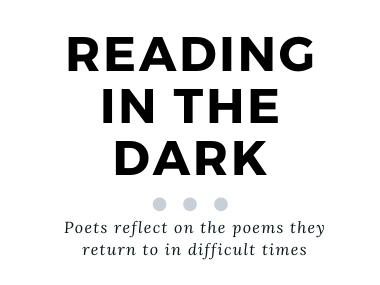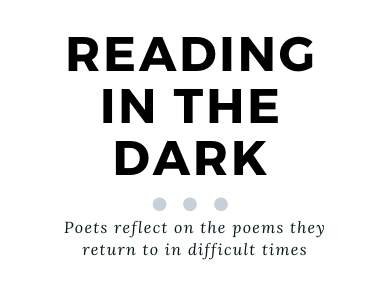Reading in the Dark
Peter Balakian on Robert Pinsky’s “Samurai Song”

Samurai Song
When I had no roof I made
Audacity my roof. When I had
No supper my eyes dined.
When I had no eyes I listened.
When I had no ears I thought.
When I had no thought I waited.
When I had no father I made
Care my father. When I had
No mother I embraced order.
When I had no friend I made
Quiet my friend. When I had no
Enemy I opposed my body.
When I had no temple I made
My voice my temple. I have
No priest, my tongue is my choir.
When I have no means fortune
Is my means. When I have
Nothing, death will be my fortune.
Need is my tactic, detachment
Is my strategy. When I had
No lover I courted my sleep.
Robert Pinsky, "Samurai Song" from Jersey Rain (Farrar, Straus & Giroux, LLC,). Copyright © 2000 by Robert Pinsky. Reprinted with the permission of Robert Pinsky.
In response to the Coronavirus pandemic, we asked poets to write about the poems they return to in difficult times—to find solace, perspective, or even a moment of delight. Subscribe to the PSA newsletter for more Reading In The Dark responses and to keep updated with the PSA.
Robert Pinsky’s “Samurai Song” is a poem that explores the mind’s ingenuity for adapting to hard times. The poem’s tercets are beautifully made out of anaphoric phrases that give the poem its song and chant-like quality. Its rhythms become hypnotic as its images and metaphors hook one to another.
The poem takes Keats’ notion of negative capability to a more complex place by exploring how absence yields presence and how the mind finds its way into a surprise of insight grounded in paradox and reversal: “When I had / No supper my eyes dined”; “When I had no eyes I listened. / When I had no ears I thought.” The poem balances the philosophical with the existential as it navigates the imagination’s capacity to see—to move from metaphor to insight. Pinsky summons the warrior spirit in ourselves that can engage difficult times with lyric language under pressure, and with the imagination, which is, to recall Kenneth Burke’s phrase, “equipment for living.”
—Peter Balakian
Peter Balakian’s recent book of poems Ozone Journal won the Pulitzer Prize in 2016. He teaches at Colgate University.

